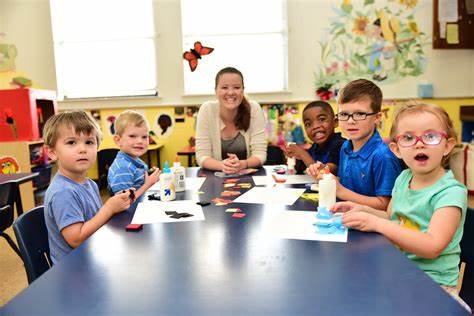A degree in early childhood education can unlock a treasure trove of opportunities for those passionate about shaping young minds. It’s a field that allows individuals to make a tangible impact on society by nurturing the developmental stages of children during their most formative years. From traditional teaching roles to innovative educational positions, the possibilities are vast and varied. Discovering the right career path can be as enriching as it is rewarding. Keep reading to explore the potential career avenues that await those with a passion for early childhood education.
Success Stories: Transforming Early Childhood Education Into a Rewarding Career
Inspirational figures in early childhood education are plentiful, ranging from those who’ve innovated classroom practices to those who’ve grown their expertise into successful businesses. The stories of such educators serve as a testament to the creative and impactful ways this degree can be utilized. Anecdotes abound of educators who’ve turned their love for teaching into renowned educational programs recognized far and wide.
There are accounts of professionals who have used their background in early childhood education to become published authors, contributing valuable educational literature to the field. Their work, infusing research-based practices with accessible language, guides educators, parents, and policymakers alike in supporting the development of young children.
Notably, within these tales of success, many professionals have underscored the importance of further education. The pursuit of an online college early childhood education program, for instance, has provided the necessary flexibility for working educators to expand their qualifications while continuing to make a difference in the lives of children.
The Role of an Early Childhood Educator in Today’s Society
In a rapidly changing society, the role of early childhood educators cannot be overstated. These educators are responsible for more than just academic instruction; they shape the social and emotional development of their young charges. As the initial guides in a child’s education journey, they set the pace for lifelong learning and adaptability.
Today’s educators are also cultural mediators and inclusion champions, creating environments where diversity is celebrated and each child is valued. They are specially trained to identify and cater to various learning styles and needs, ensuring that no child is left behind. Recognizing early signs of learning difficulties or emotional distress allows them to intervene effectively and provide necessary support.
Amid societal shifts, early childhood educators are also evolving to incorporate technology into learning, aware of its significant role in modern education. They guide children in interacting with digital tools safely and responsibly, contributing to a well-rounded early education that eases the transition to formal schooling.
Beyond the Classroom: Alternative Careers for Early Childhood Graduates
Those holding an early childhood education degree have opportunities that extend far beyond the school setting. For example, some become family support specialists who offer guidance and resources to parents, helping them foster their child’s development at home. This role underscores the critical part families play in education and emphasizes the home as a primary learning environment.
Furthermore, corporate roles such as educational consultants or toy and game designers also require the expertise of early childhood professionals. These positions leverage their understanding of child development to create products and strategies that promote learning through play. In such industries, the blend of commerce and education opens up new avenues for professional growth and innovation.
Media companies, too, are in constant need of early childhood experts to produce content that is not just entertaining but also educational for young audiences. From children’s books to educational television programming, these creators play a significant part in delivering quality content that can shape a child’s understanding of the world.
Advancing Your Early Childhood Career: Further Studies and Specializations
For those looking to leverage their initial degree for career advancement, pursuing further studies or specializations can be highly beneficial. Postgraduate studies in early childhood education can open doors to higher-level positions within educational institutions, such as university lecturers or educational researchers, where they can influence future teaching methodologies.
Specializations in areas like special education, language acquisition, or educational technology can lead to more focused career paths. These specialized skills are highly valued as they cater to the specific needs of children and adapt to the evolving landscape of education. Engagement in continuous professional development is important for keeping up with the latest educational trends and best practices.
Overall, the journey from an early childhood education degree to a fulfilling career is marked with a multitude of possibilities. An intersection of passion, dedication, and ongoing learning can lead to a rewarding professional life that not only impacts individual children but also contributes significantly to the broader educational landscape.

